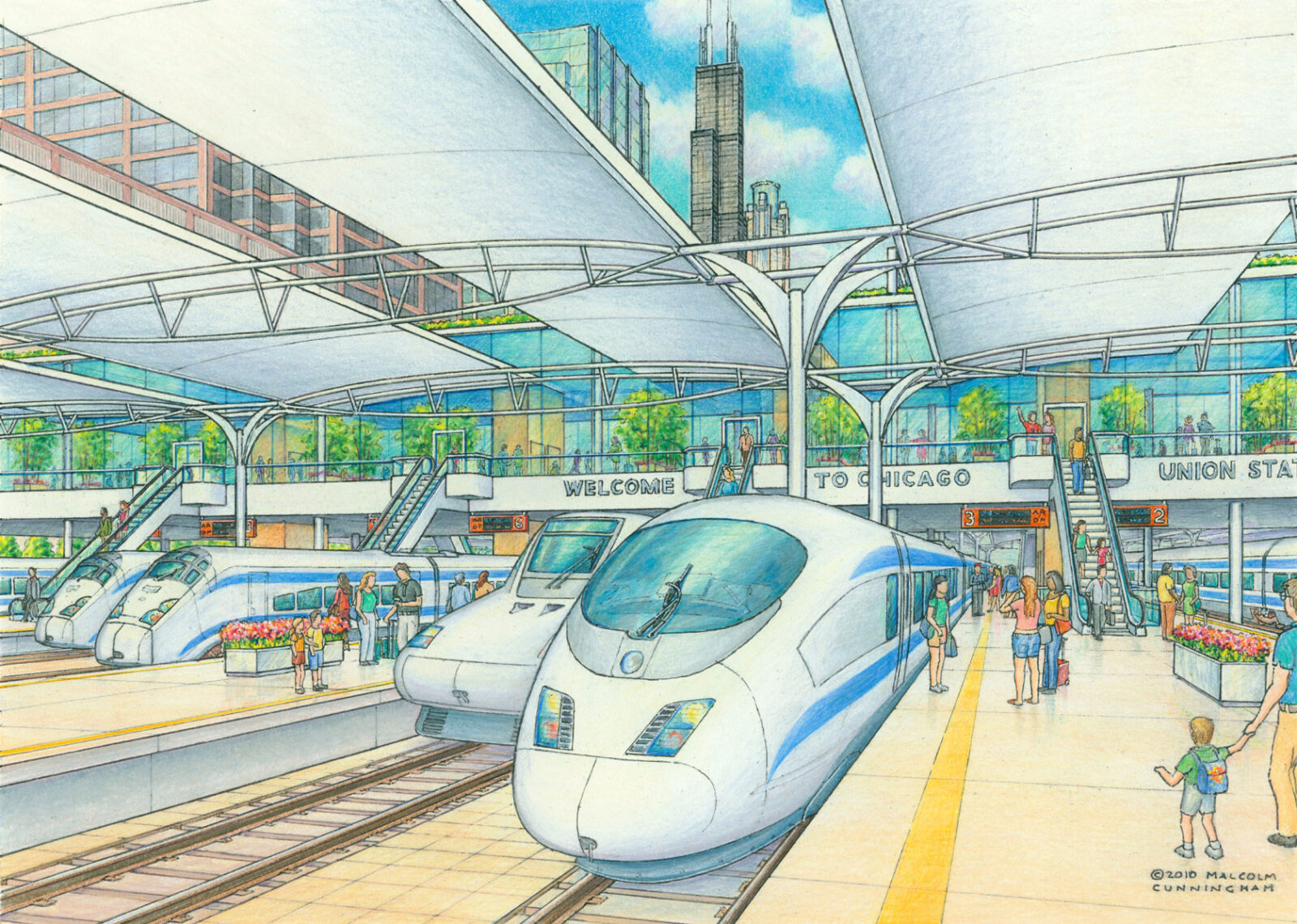Summary
The Chicago Tribune published an outstanding op-ed Sunday. It set new expectations for Midwestern trains while endorsing upgrades to Chicago Union Station.
The Chicago Tribune published an outstanding editorial Sunday. Written in response to Governor Pritzker’s press conference seeking federal support for the Chicago Hub Improvement Project, or CHIP, it set new expectations for Midwestern trains while endorsing upgrades to Chicago Union Station.
We are excited to see the Tribune take an aggressive stance in favor of Regional Rail, with a heavy focus on Brightline Florida’s soon-to-launch hourly service linking Orlando to Miami—versus the paltry service offered in the Detroit, Milwaukee, and St. Louis corridors.
The big lesson there, as the Tribune correctly noted: launching with high-frequency service is critical to success.
Brightline Florida will be a game changer. Soon, Americans from all walks of life will experience what American trains should be. And they will return home asking: “How can I get this for my city?”
Just as exciting: Brightline West is poised to establish the first true high-speed train in the US, running at 186 mph from Las Vegas to the outskirts of LA.
These projects will likely spur states to get become more aggressive about making fast, frequent, and affordable trains a reality. But we have to be real about this: the states and Federal government must play an aggressively active role in making great trains possible in other places. And we must recognize the key factor making both Brightline projects possible: Land, both for building new tracks and for new real-estate developments.
In the Florida case, the state decided in the early 1990s to reserve right-of-way along expressways and at Orlando Airport for high-speed rail; a sister company owned the freight tracks along the coast; and, most importantly, another sister company owned the land around the stations.
In the Las Vegas case, the project is feasible because of a large parcel near the airport, ripe for development, combined with right-of-way parallel to the state-owned highway.
These conditions will be difficult to replicate elsewhere. States will need play a major role in acquiring the land and gaining the environmental clearances. The North Central Texas Council of Governments is setting a great example by doing the prep work for a high-speed segment in I-30.
And, again: The Federal government must take a lead role, since most projects cross state lines. Interstate projects always depend on its resources and strong leadership.
So, it is exciting to see the Tribune set such high expectations for service frequency and reliability. And they are spot on that fixing the immediate problems at Chicago Union Station is important—but far from enough.
We need to ramp up pressure on governors across the country. Please help by asking Congress to support Governor Pritzker’s request for CHIP funding.

